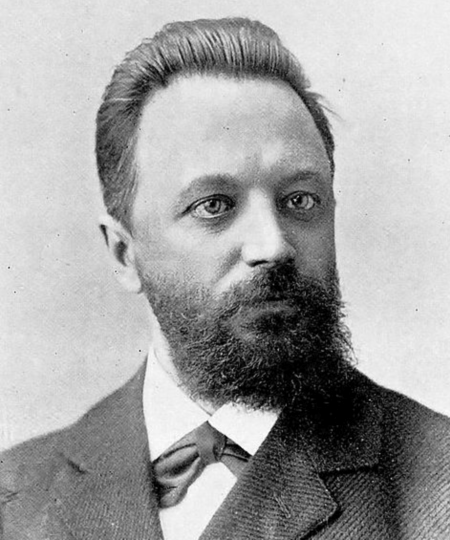Mikhail Chigorin: The Pioneer of Russian Chess School
February 28, 2024
Mikhail Ivanovich Chigorin (1850–1908) was a Russian chess grandmaster and a pivotal figure in chess history, not only as one of the leading players of his era but also as the founder of the Russian chess school. His contributions to chess extend beyond his games and competitive achievements to his role in popularizing chess in Russia and developing chess theory.

Mikhail Ivanovich Chigorin (1850–1908)
Born in Gatchina, near Saint Petersburg, Chigorin showed an interest in chess at a relatively late age, with some accounts suggesting he learned the game in his late teens. Unlike many of his contemporaries, Chigorin did not have the benefit of a formal education in chess during his early years. His rise in the chess world was largely self-taught, through intense study and practice, which is perhaps what fueled his creative and unorthodox approach to the game.
Creativity on the Board
Chigorin stood out for his innovative and creative approach to chess, favoring complex positional battles and original openings. He was a master of piece play, particularly renowned for his ability to utilize the potential of knights, often avoiding popular theoretical variants in favor of less explored paths. This reflected his philosophy that chess was not just a science but also an art.
Challenges for the Title
Chigorin was a challenger for the world championship title twice, both times facing Wilhelm Steinitz. Their first encounter in 1889 in Havana ended in a close defeat for Chigorin, and they met again in 1892, also in Havana, where Chigorin was once again narrowly defeated. Although he never captured the title, his ability to compete at the highest level made him one of the most respected players of his time.
Contributions to Chess Theory
Chigorin not only played chess at a high level but also contributed to chess theory, particularly through the development of openings. Among his contributions are the Chigorin Defense in the Queen’s Gambit (1.d4 d5 2.c4 Nc6) and the Chigorin Variation in the Spanish Game (Ruy Lopez), occurring after 1.e4 e5 2.Nf3 Nc6 3.Bb5 a6 4.Ba4 Nf6 5.O-O Be7 6.Re1 b5 7.Bb3 d6 8.c3 O-O 9.h3 Na5. These variations reflect his inclination for active play and a preference for dynamic positional combat.
Personal Life
Chigorin’s personal life, much like his chess career, was marked by his dedication to the game. He devoted much of his time to playing, studying, and promoting chess. Despite the challenges he faced, including health issues in his later years, his passion for chess never waned. Chigorin was also instrumental in establishing chess clubs and organizing tournaments in Russia, thereby laying the groundwork for the future of Russian chess dominance.
Chess Writer and Editor
Beyond his games, Chigorin was a respected chess writer and editor, contributing to chess literature through his articles and books. He founded and edited several chess magazines, playing a key role in the development of chess in Russia.
Legacy
Mikhail Chigorin left an indelible mark on the world of chess. His name is still revered among chess players, and the openings he developed continue to inspire players around the globe. As the founder of the Russian chess school, Chigorin not only promoted chess in his homeland but also laid the foundations for Russia’s dominance in the chess world in the years that followed. His approach to chess as a combination of science, sport, and art continues to resonate through the chess community, reminding us of the richness and depth of the game we love.
